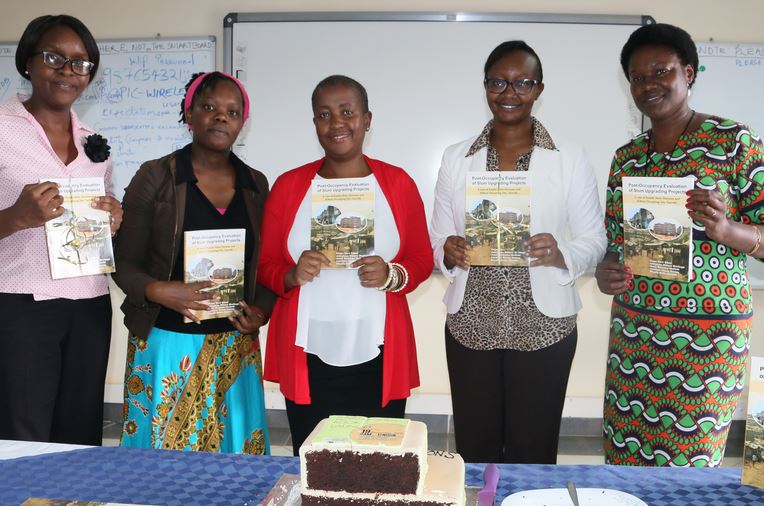
A new study that provides ground-breaking insights into the concept of slum upgrading in Kenya has been published by a team of researchers in the School of Architecture and Building Sciences (SABS) at Jomo Kenyatta University of Agriculture and Technology (JKUAT).
The study by the JKUAT research team led by the Principal Investigator, Dr. Susan Njeri Kibue and her colleagues – Josephine Wacera Muchogu, Janet Kemuma Ondieki, Carolyne Wanza Nthiwa and Brenda Maiba Bhoyyo, explores the process of slum upgrading programme, focusing on two types of delivery methodologies: the informal community-led process and the formal government-driven slum upgrading process.